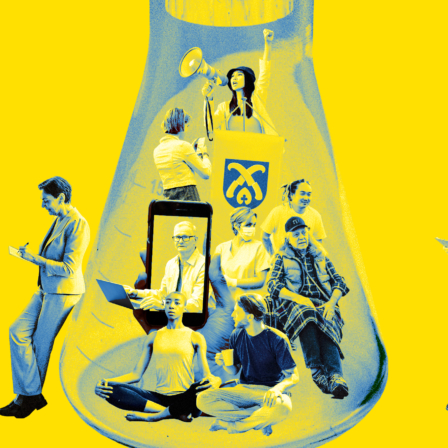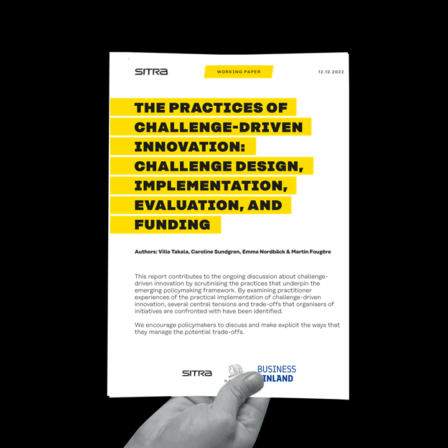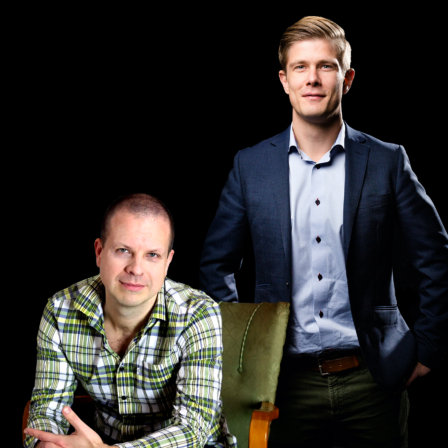Systems thinking has to be adapted to different conditions and innovation problems, pragmatically combined with other tools and methods to be effective. It requires a lot of resources – time and capacity building – but if it is truly transformative change you are interested in, then it is a good place to start.
The Observatory of Public Sector Innovation at the OECD has been working on building up its systems thinking workstream over the last three and half years. It hasn’t been easy, but we can say we don’t just talk about systems thinking we use it with our collaborators. Among other things, we have helped review the implementation of the Scottish National Outcomes Framework; helped set up mission capacities in Estonia; assessed the ability to learn continuously in the Welsh Education Department; and we continue to work in Slovenia to transform their procurement system. All this, using systems thinking. It is one of the approaches we use or promote (check out our Toolkit Navigator), albeit one with high sunk costs connected to it. The law of instruments would assume that when holding a hammer all problems (i.e. systemic issues) should look like nails – so, why isn’t that so?
We are not blindly in love with systems thinking, because we use it to analyse our own innovation portfolio systemically. This means we try to understand how our resources, capacities, feedback mechanisms, tools and methods influence our work. It helps us avoid just playing to our strengths and doing the hard work of continuous learning instead. Using systems analysis and our own innovation model, we can classify our portfolio and working methods and concentrate on where we as a group need to be rather than where we would like be. And the answer is not always more systems thinking. It offers a great starting point but has to be augmented to help achieve the impact you intend.
Systems thinking in its various forms has definite strengths. It helps make the difficult and not always apparent nature of phenomena visible. Systems thinking can show us how wicked problems perpetuate, transform and, unfortunately, persevere. If we connect a new desired state – a new purpose, a mission – to the analysis of the problems we can start to investigate how to reach that in the midst of systemic barriers. This might seem like an excellent way to tackle the UN’s Sustainable Development Goals (SDGs) and most other policy goals connected to wicked problems. But even if we know what is going on, how issues are interlinked and interdependent, the systems analysis does not help us know what needs to be done or where to start. This is where most systems practitioners fail: they paint a pretty picture of the problem but fail to offer an actionable approach to tackle it. And this is where we at the Observatory are quite pragmatic and introduce other tools from design, futures thinking, behavioural insights and other fields to begin to design a systemic intervention that we can follow and tweak over time to better affect the system in question. Our approach feeds into the recent call from the OECD to introduce new techniques and tools to the public sector to tackle the potential systemic collapse.
We’re also planning to use a mixed methods approach in Finland to look into what the future of child-centred policy could look like. We aim to use systems thinking to analyse what the current system is delivering, and how this matches up with the needs of different stakeholders. However, the approach by itself will not inform us about what an alternative future for child policy should look like. To resolve this, we have to add anticipatory tools and methods to those from systems thinking to really make transformative change happen. As part of the work related to our anticipatory innovation portfolio, we hope to explore how these methods might work in Finland and also other countries where we will be running similar systemic experiments.
The way we see it is tackling wicked problems and transformative change is like a triathlon – you need different skills and tactics to persevere and succeed. Systems thinking, like swimming as a skill needed to get through a triathlon, is definitely needed. If you are only good at swimming – or running or cycling – without being good at them all, your triathlon will not be successful beyond one stage.
Sitra’s guest blogs give a voice to the players of the future in different fields. They do not (necessarily) directly link to Sitra’s work or agenda, but are the authors’ thoughts on current issues that relate to the themes Sitra is passioned about.
Want to learn more?
Join the Changemakers community on Facebook.
Order Sitra Lab’s monthly newsletter to get the latest updates on what’s happening.















Recommended
Have some more.